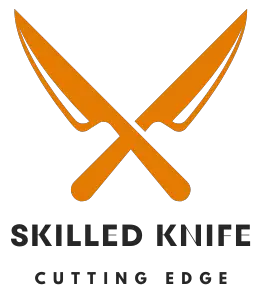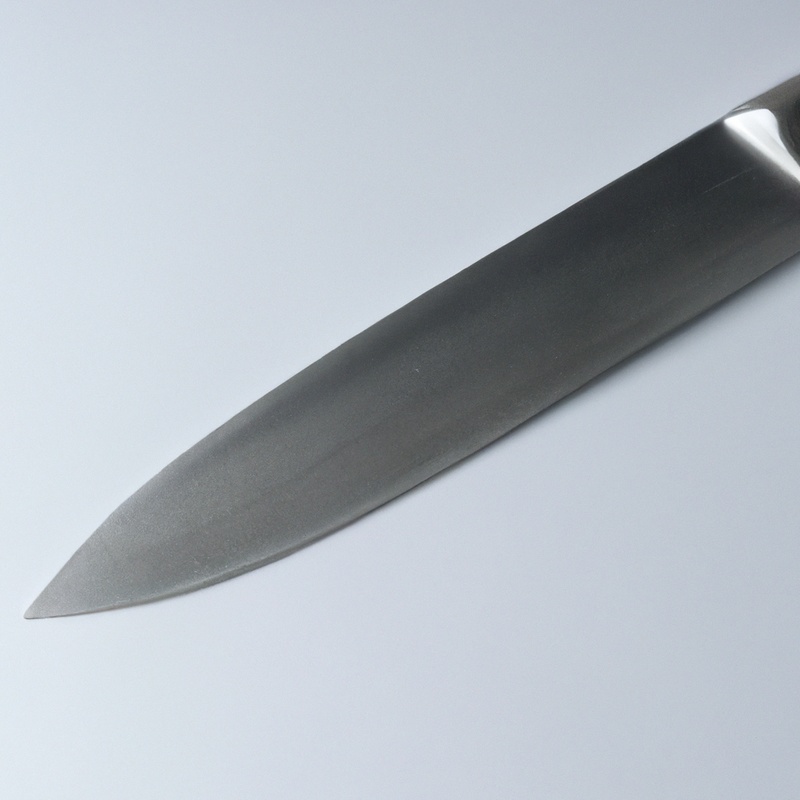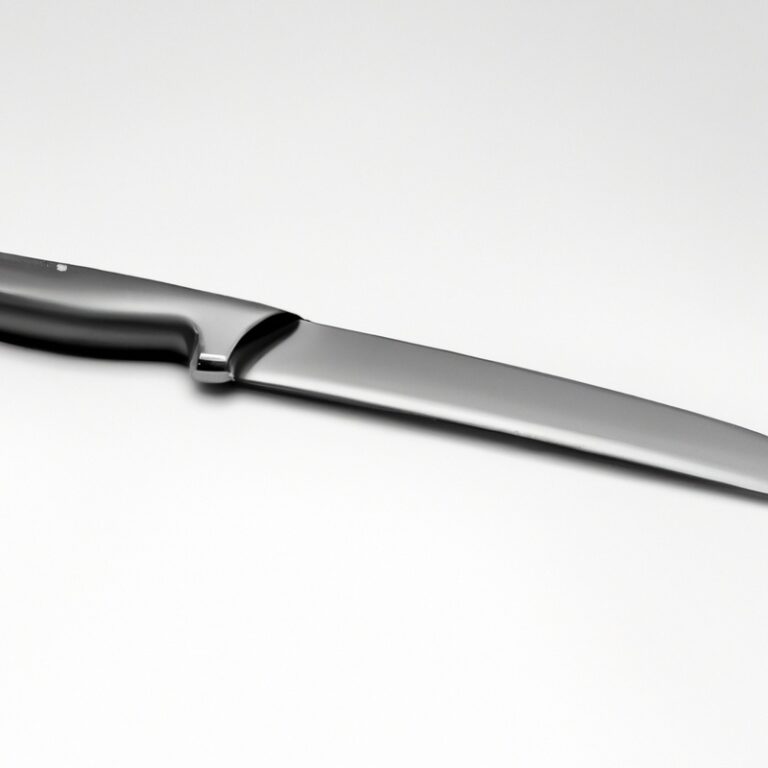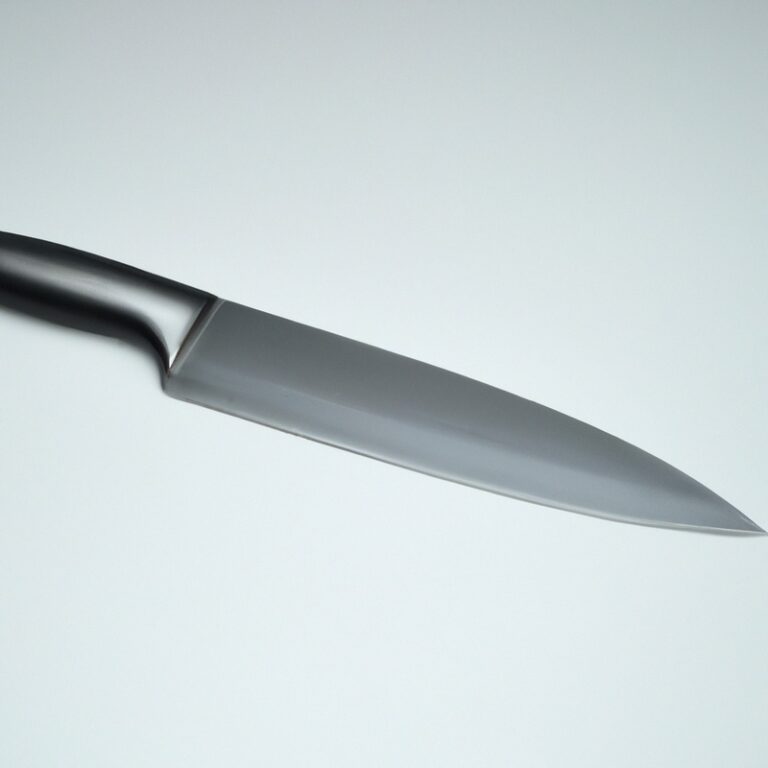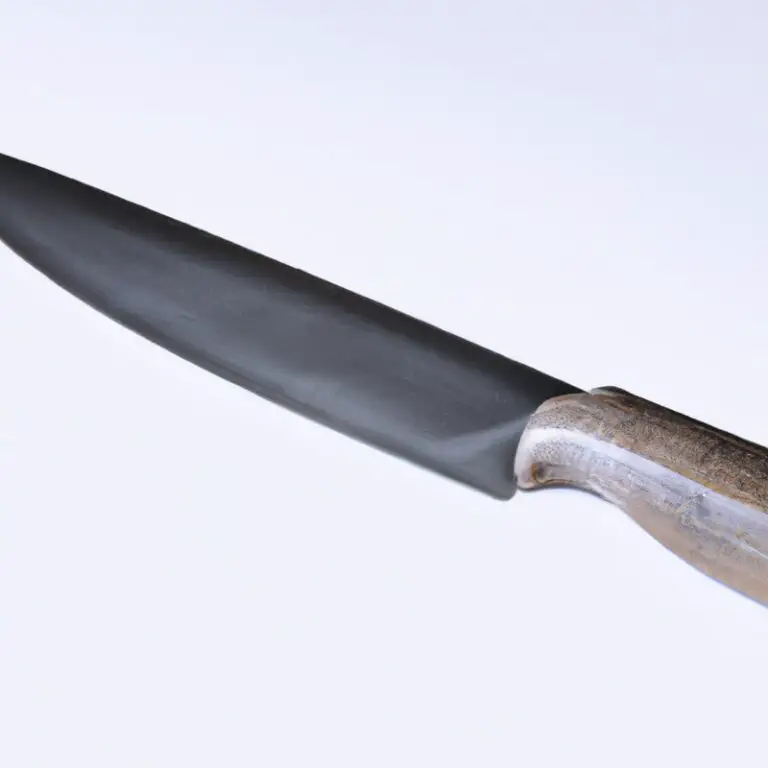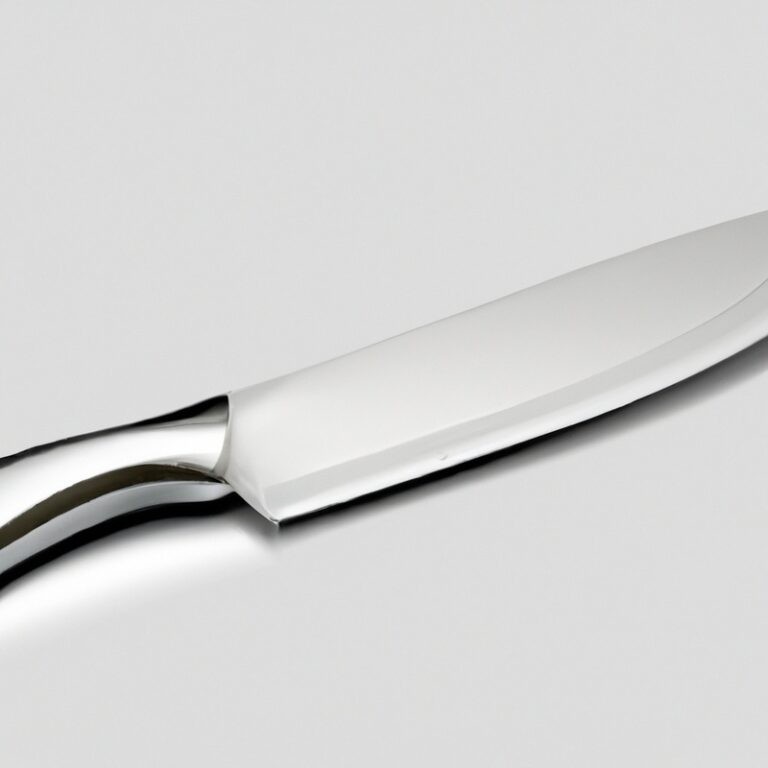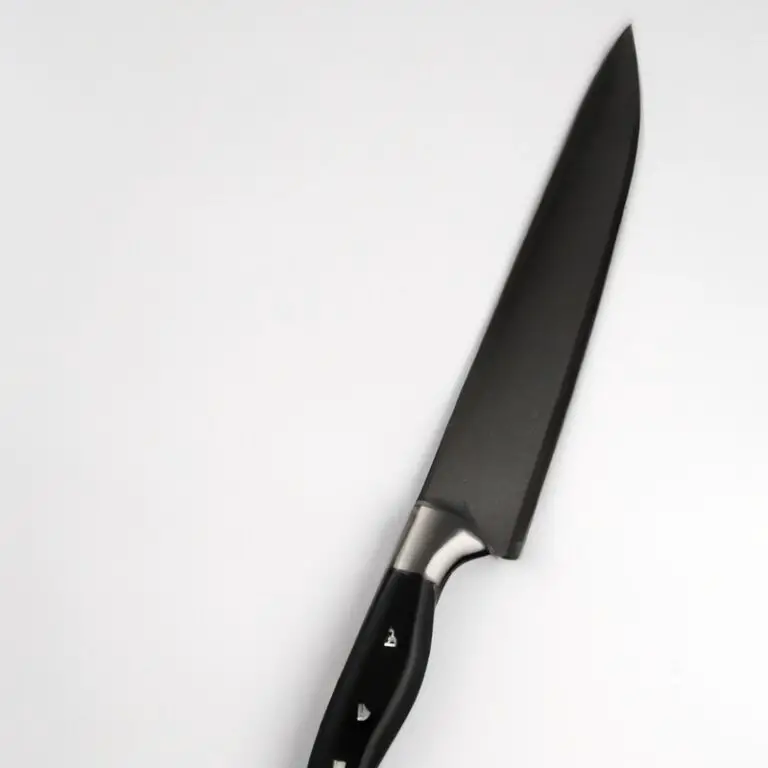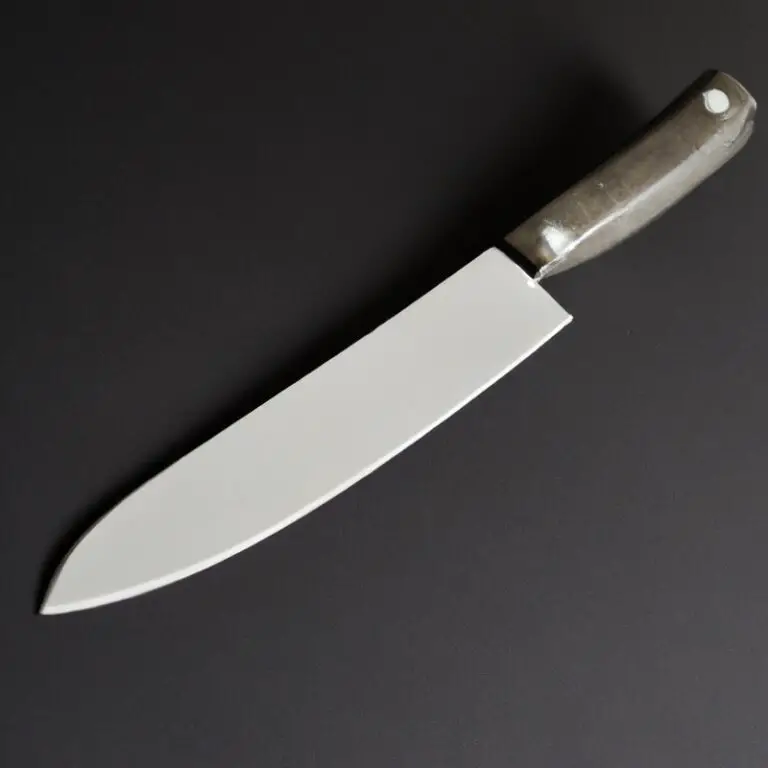What Is The Role Of Zirconium In Knife Steel?
Key Takeaways:
- Zirconium enhances the strength and toughness of knife steel.
- Zirconium promotes the formation of fine carbides, improving the blade’s edge retention.
- Zirconium helps prevent corrosion and oxidation, increasing the steel’s durability.
- Zirconium maintains the overall balance and performance of knife steel, making it a valuable alloying element.
Imagine having a trusty knife by your side, ready to tackle any cooking adventure or outdoor expedition.
But have you ever wondered what makes a knife truly exceptional?
That’s where zirconium comes in.
As an expert in knife steel, I’m here to shed light on the vital role zirconium plays in crafting a cutting-edge blade.
From boosting corrosion resistance and enhancing strength to improving blade sharpness and reducing wear, zirconium is a true game-changer.
Buckle up as we dive into the world of zirconium-enhanced knife steel and explore the secrets behind its exceptional performance.
Understanding Knife Steel Composition
Importance of Alloying Elements
Alloying elements play a vital role in knife steel composition. They enhance specific properties to make the steel more suitable for its intended use.
For example, adding chromium improves corrosion resistance, while vanadium increases strength and toughness.
Molybdenum enhances the steel’s ability to withstand high temperatures, and tungsten improves wear resistance. These alloying elements work together to create a steel that is durable, corrosion resistant, and capable of retaining its sharpness.
The right combination of alloying elements is essential for producing high-quality knife steel.
Zirconium in Knife Steel
Role of Zirconium in Enhancing Corrosion Resistance
Zirconium plays a crucial role in enhancing the corrosion resistance of knife steel. It forms protective oxide layers on the surface of the steel, preventing the penetration of corrosive elements like water and oxygen.
This makes the knife more resistant to rust and corrosion, increasing its longevity and durability.
Zirconium also improves the steel’s ability to withstand harsh environments and exposure to chemicals. By incorporating zirconium into the steel composition, knife manufacturers ensure that the blade remains resistant to corrosion, even in challenging conditions.
Zirconium’s Contribution to Improved Strength and Toughness
Zirconium plays a significant role in enhancing the strength and toughness of knife steel. Its addition in the alloy helps to refine the grain structure, making the steel more uniform and reducing the occurrence of defects.
This leads to improved strength and resistance to deformation.
Zirconium also contributes to the toughness of the steel, making it less prone to fractures and ensuring it can withstand heavy use without breaking. Its presence in knife steel is a key factor in creating blades that are durable and reliable.
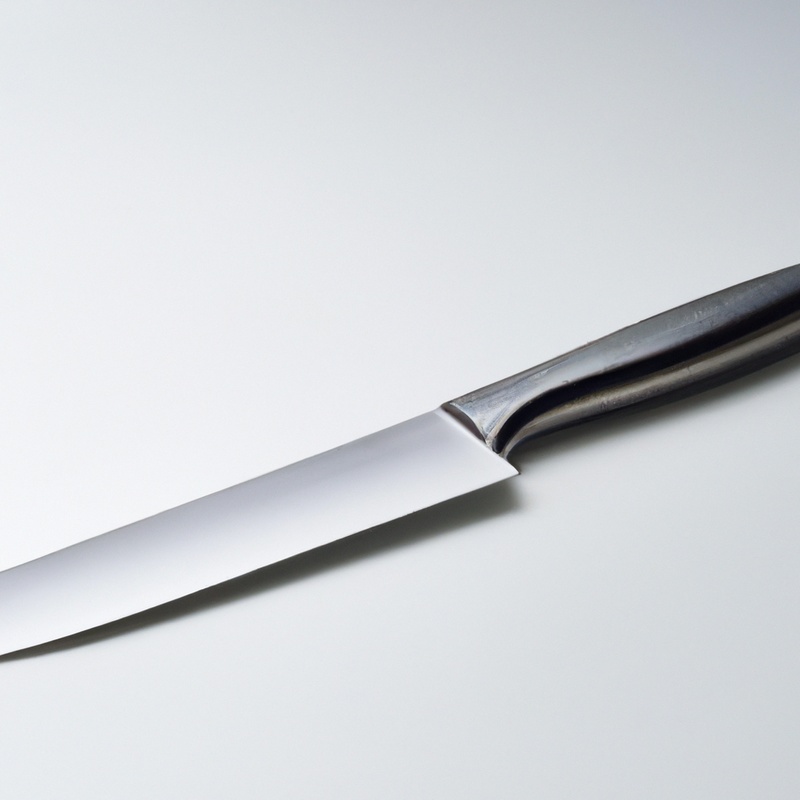
Zirconium’s Effect on Blade Sharpness
Zirconium as a Grain Refiner
Zirconium plays a key role as a grain refiner in knife steel.
When added to the steel alloy, zirconium helps to refine the size and distribution of the grains, which in turn improves the overall strength, toughness, and hardness of the blade.
By refining the grain structure, zirconium helps to ensure a finer and more uniform microstructure in the steel, resulting in enhanced performance and durability of the knife.
This makes zirconium an essential element in the manufacturing process of high-quality knives.
Impact of Zirconium on Blade Edge Retention
Zirconium plays a significant role in improving blade edge retention.
Its presence in knife steel enhances the hardness and wear resistance of the blade, allowing it to maintain its sharpness for a longer period of time.
This is because zirconium helps to form a fine-grained structure in the steel, which reduces the size of carbide particles that can weaken the blade’s edge.
By incorporating zirconium into the steel composition, knife manufacturers can produce blades that exhibit excellent edge retention and require less frequent sharpening.
Other Benefits of Zirconium in Knife Steel
Zirconium’s Contribution to Heat Resistance
Zirconium plays a crucial role in enhancing the heat resistance of knife steel. Its addition to the steel composition helps to improve the steel’s ability to withstand high temperatures without losing its strength or hardness.
This is particularly important in applications where the knife is subjected to extreme heat, such as during prolonged use or in high-temperature environments.
By incorporating zirconium into the steel, manufacturers can ensure that the knife will retain its performance and structural integrity even under challenging conditions.
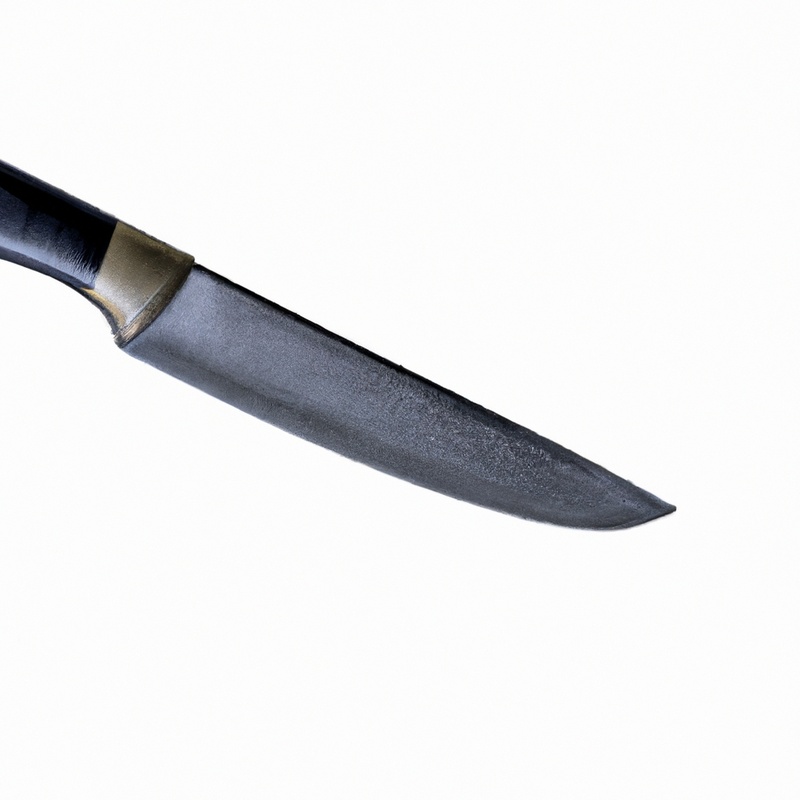
Zirconium’s Role in Reducing Friction and Wear
Zirconium plays a crucial role in reducing friction and wear in knife steel.
It acts as a solid lubricant, creating a protective layer on the surface of the blade, which reduces friction during cutting.
This helps in maintaining the sharpness of the blade for longer periods of time.
Zirconium also enhances the wear resistance of the steel, making the blade more durable and able to withstand repetitive use.
Additionally, it prevents oxidation and corrosion, further extending the lifespan of the knife.
So, choosing a knife with zirconium-enhanced steel can lead to improved performance and longevity.
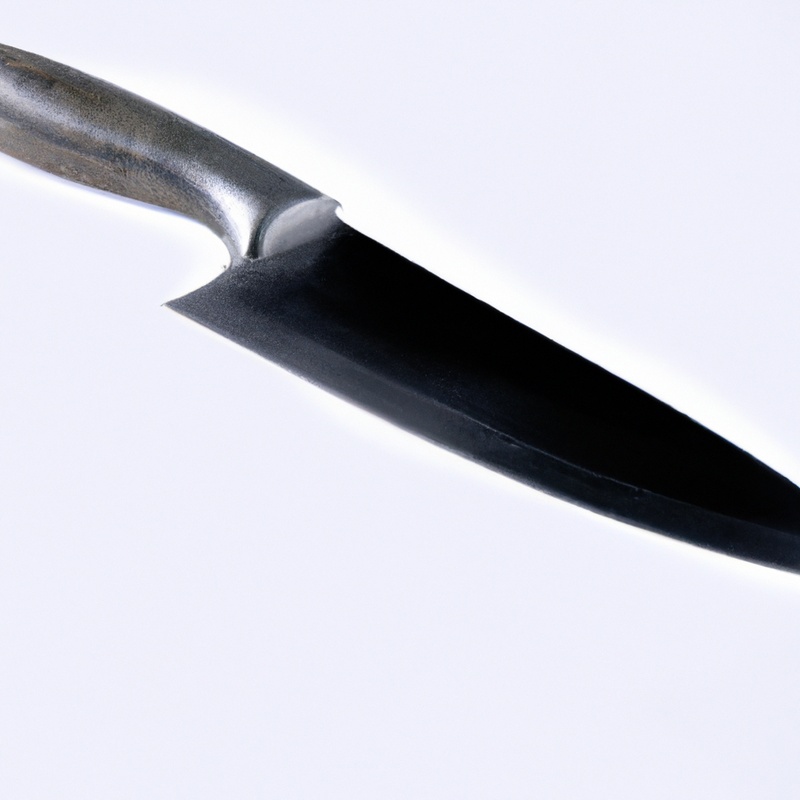
Choosing the Right Knife with Zirconium-Enhanced Steel
Factors to Consider When Selecting a Knife
When selecting a knife, there are a few important factors to consider. Firstly, decide on the type of knife you need based on its intended use.
Is it for everyday tasks like chopping vegetables or for specialized purposes like hunting or survival?
Secondly, consider the blade material. High-quality stainless steel is a popular choice due to its durability and resistance to corrosion.
Thirdly, think about the handle material and design.
A comfortable and ergonomic handle ensures better control and reduces the risk of accidents. Additionally, pay attention to the knife’s weight, balance, and overall feel in your hand.
And finally, consider your budget and choose a knife that offers the best value for your money.
Brands Utilizing Zirconium in Knife Manufacturing
There are several knife brands that are utilizing zirconium in their manufacturing process. One popular brand is Benchmade, known for their high-quality knives with zirconium-enhanced steel blades.
Another brand is Spyderco, which also incorporates zirconium in their knife steel to enhance performance.
Additionally, Zero Tolerance, a well-respected brand in the knife community, utilizes zirconium as well for its corrosion resistance and toughness. These brands are just a few examples of the many knife manufacturers recognizing the benefits of zirconium in their products.
Final Verdict
I have explored the crucial role of zirconium in enhancing the performance of knife steel. From improving corrosion resistance to enhancing strength and toughness, zirconium proves to be a valuable alloying element.
Additionally, zirconium’s contribution as a grain refiner and its impact on blade sharpness and edge retention cannot be overlooked.
Furthermore, zirconium offers other benefits such as heat resistance and reduction of friction and wear. When choosing a knife, considering zirconium-enhanced steel can greatly enhance your cutting experience.
Overall, understanding the role of zirconium in knife steel is essential for making an informed decision when selecting a high-quality knife.
